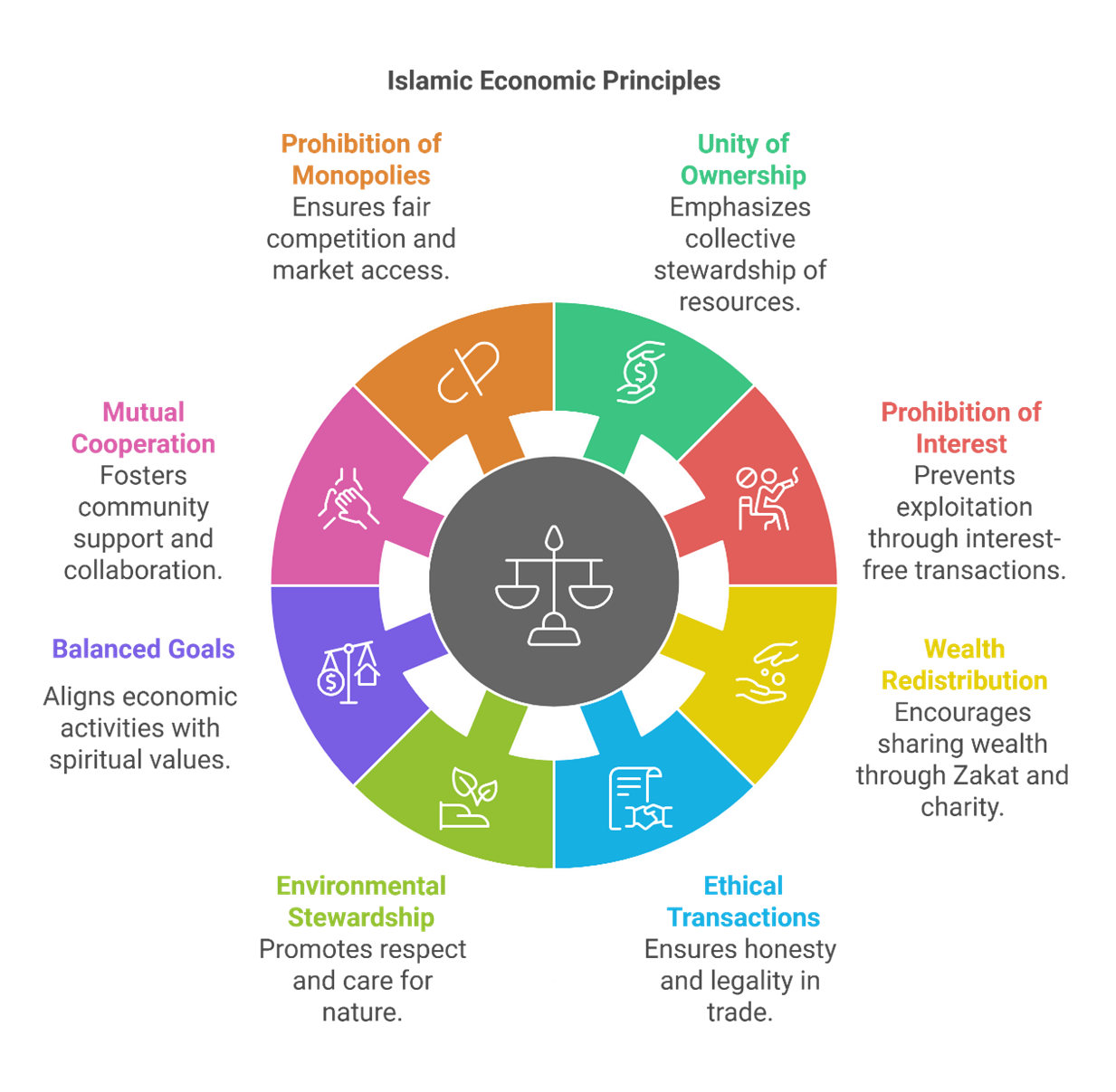
Principles of Islamic Economics According to the Quran and Hadith
- Unity of Ownership (Tawhid)
- Allah is the ultimate owner of all resources, and humans are stewards or trustees (Khalifah) of these resources.
- Reference: “To Allah belongs whatever is in the heavens and whatever is on the earth.” (Quran 2:284)
- Prohibition of Interest (Riba)
- Charging or paying interest is strictly prohibited, as it leads to exploitation and inequality.
- Reference: “Allah has permitted trade and forbidden usury.” (Quran 2:275)
- Promotion of Justice and Equity
- Wealth should circulate fairly, and exploitation or oppression is prohibited.
- Reference: “Do not consume one another’s wealth unjustly.” (Quran 4:29)
- Wealth Redistribution through Zakat and Charity
- Obligatory charity (Zakat) and voluntary giving (Sadaqah) are mechanisms to reduce poverty and ensure wealth is shared with the less fortunate.
- Reference: “Establish prayer and give Zakat.” (Quran 2:43)
- Ethical and Halal Transactions
- Trade and business activities must involve lawful (halal) goods and services and must be free from deceit or dishonesty.
- Reference: “Give full measure when you measure, and weigh with a balance that is straight.” (Quran 17:35)
- Prohibition of Hoarding and Speculation
- Hoarding wealth or commodities and speculative trading (e.g., gambling) are discouraged as they harm society.
- Reference: “And those who hoard gold and silver and spend it not in the way of Allah, give them tidings of a painful punishment.” (Quran 9:34)
- Encouragement of Work and Production
- Islam emphasizes earning a livelihood through lawful means and encourages innovation, trade, and hard work.
- Reference: “And that there is not for man except that [good] for which he strives.” (Quran 53:39)
- Prohibition of Monopolies and Unfair Practices
- Monopolistic behavior and exploitation of market conditions are discouraged to ensure fair competition.
- Reference: The Prophet Muhammad (peace be upon him) said: “Whoever monopolizes is a sinner.” (Sunan Ibn Majah, Hadith 2153)
- Balanced Material and Spiritual Goals
- Economic activities should align with spiritual objectives, avoiding materialism and focusing on societal welfare.
- Reference: “But seek, through that which Allah has given you, the home of the Hereafter; and [yet], do not forget your share of the world.” (Quran 28:77)
- Environmental Stewardship
- Economic activities should respect the environment and avoid harm to natural resources.
- Reference: “Do not commit abuse on the earth, spreading corruption.” (Quran 2:60)
- Mutual Cooperation and Solidarity
- Islam encourages economic cooperation and mutual support within the community.
- Reference: “Help one another in acts of righteousness and piety.” (Quran 5:2)
These principles create a framework for an equitable, just, and sustainable economic system in line with Islamic teachings.

